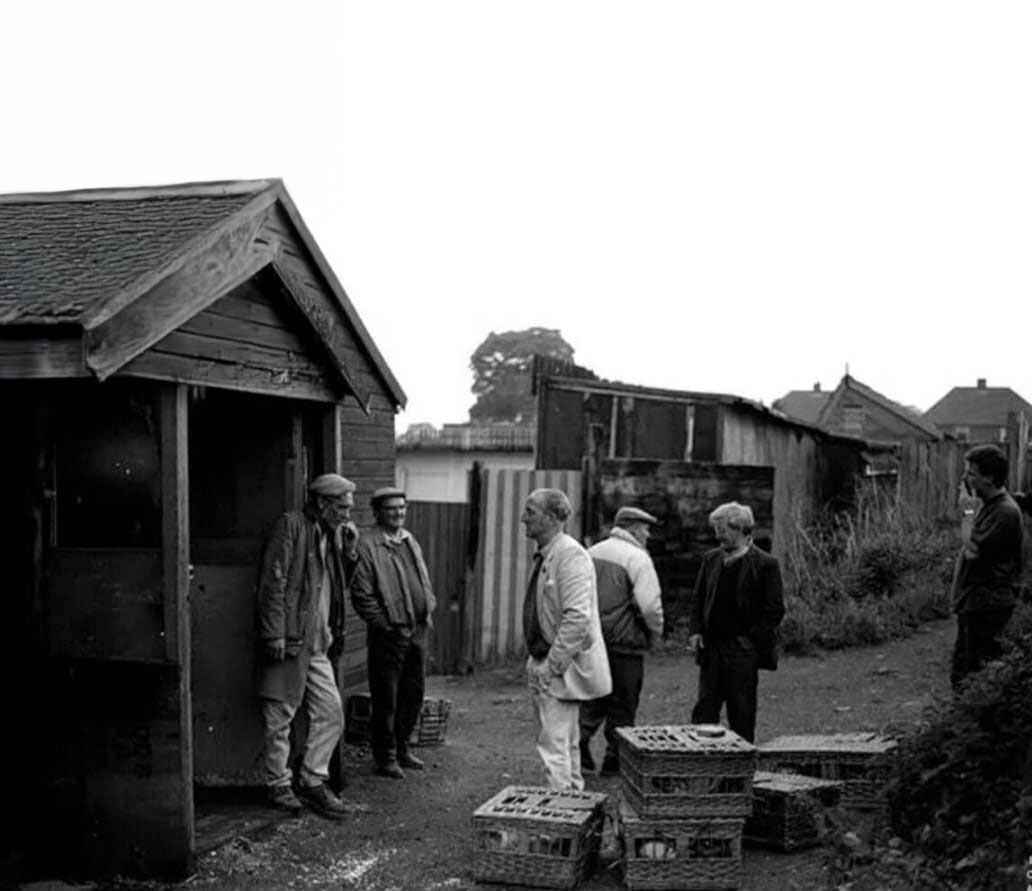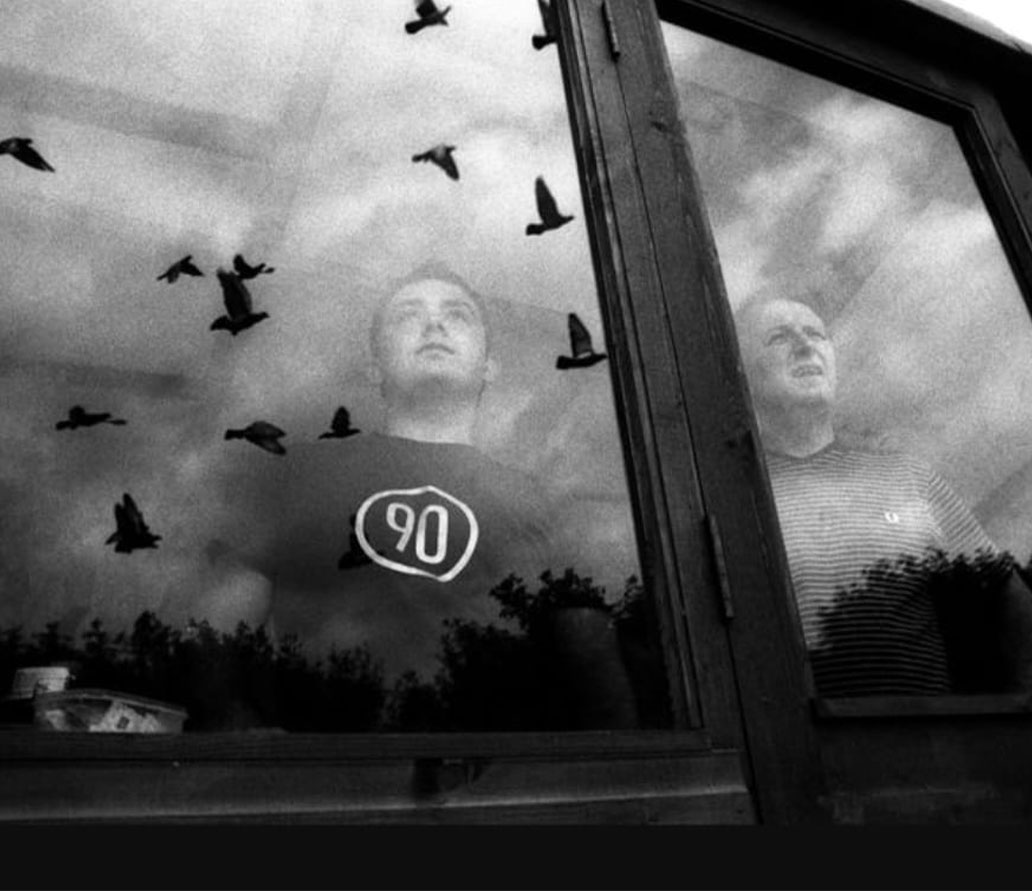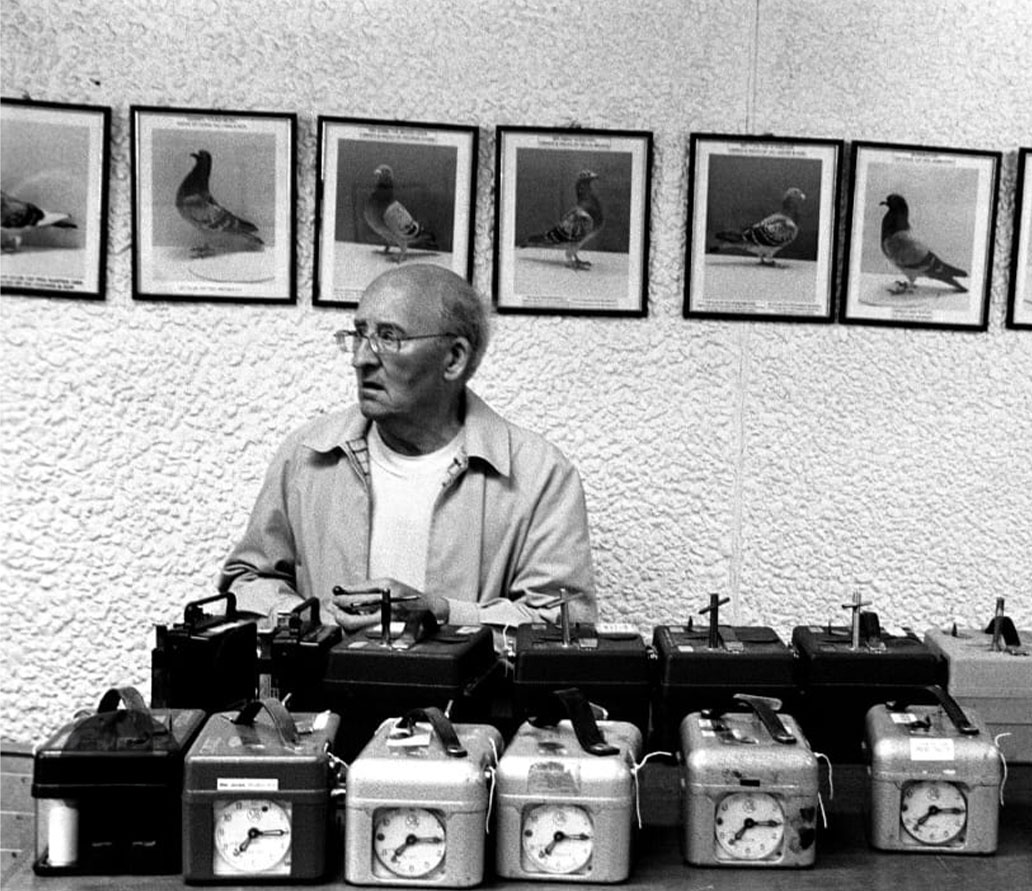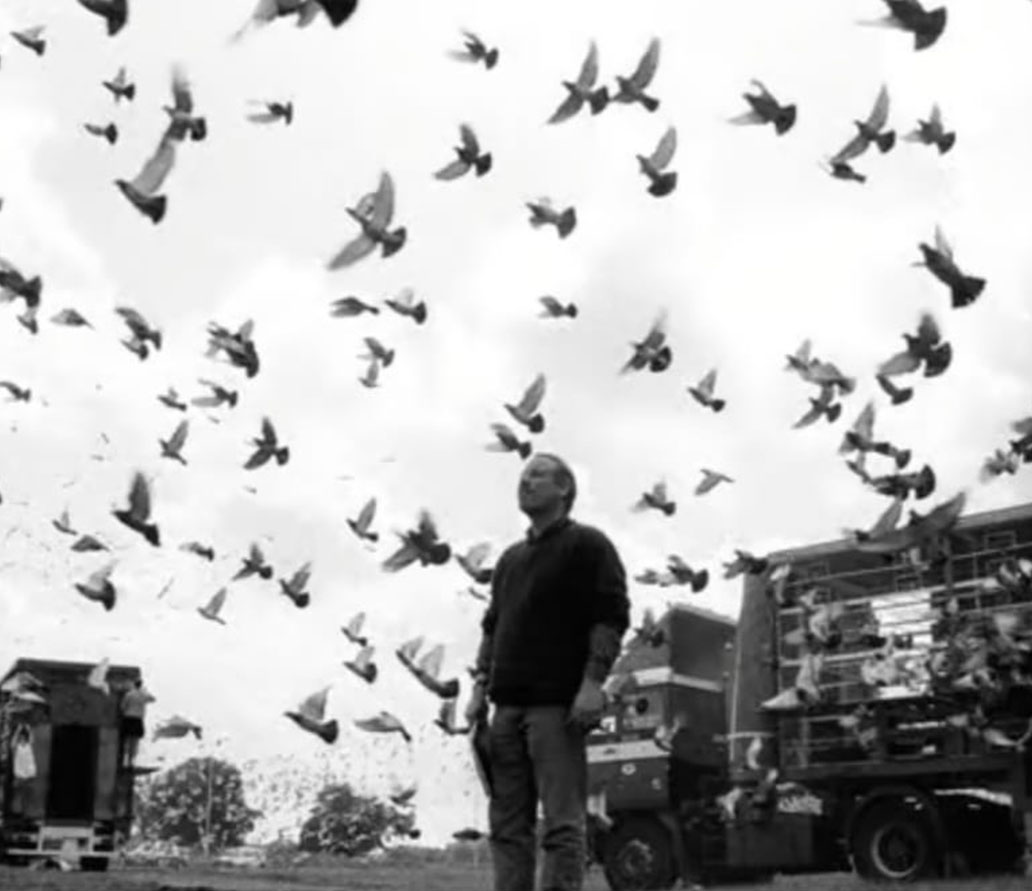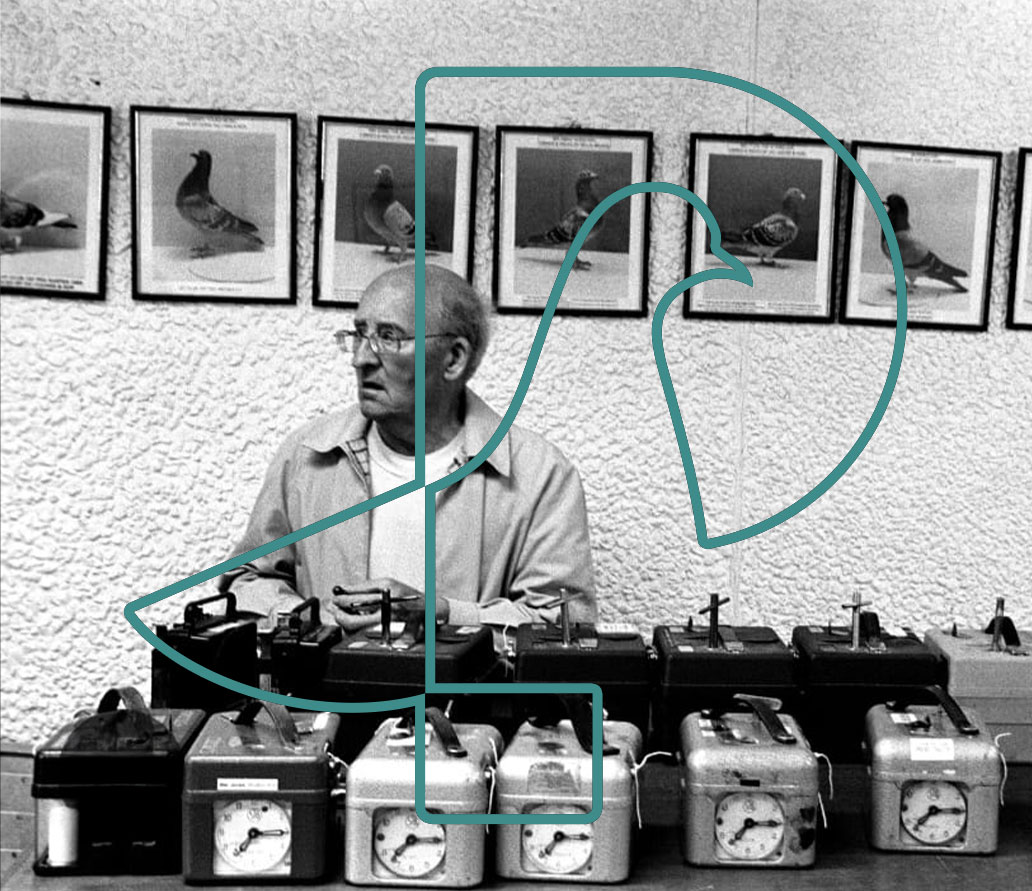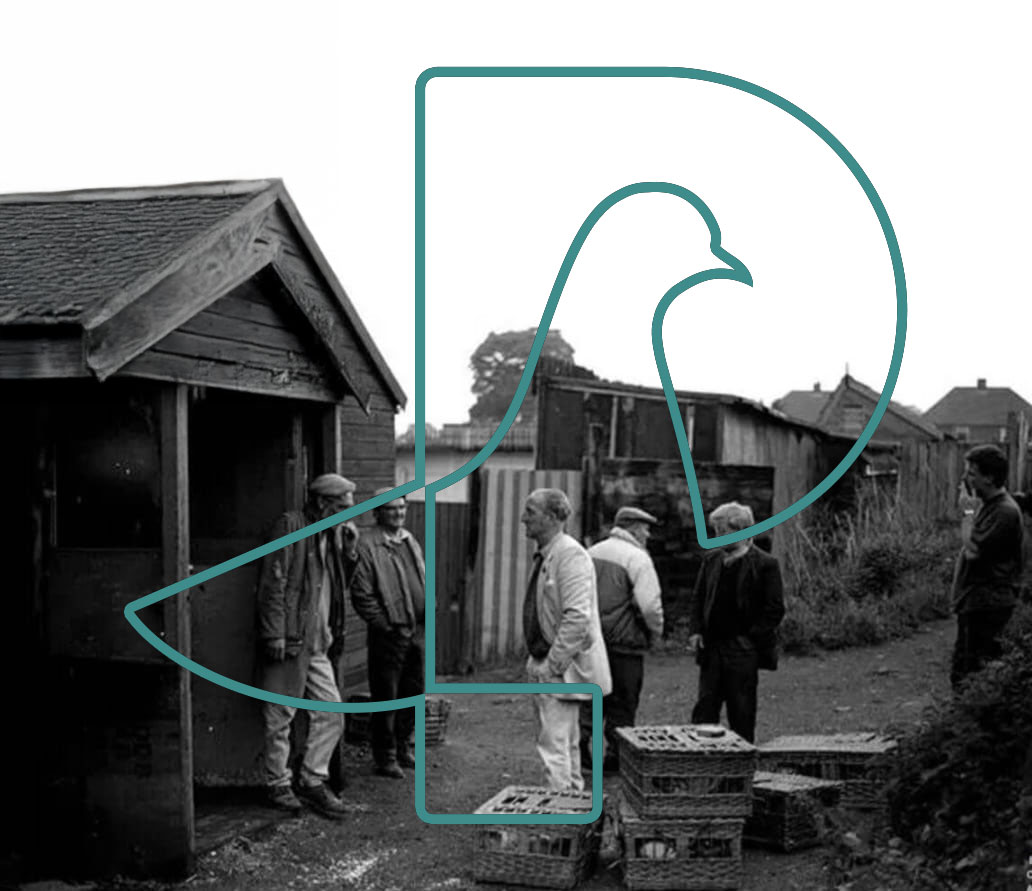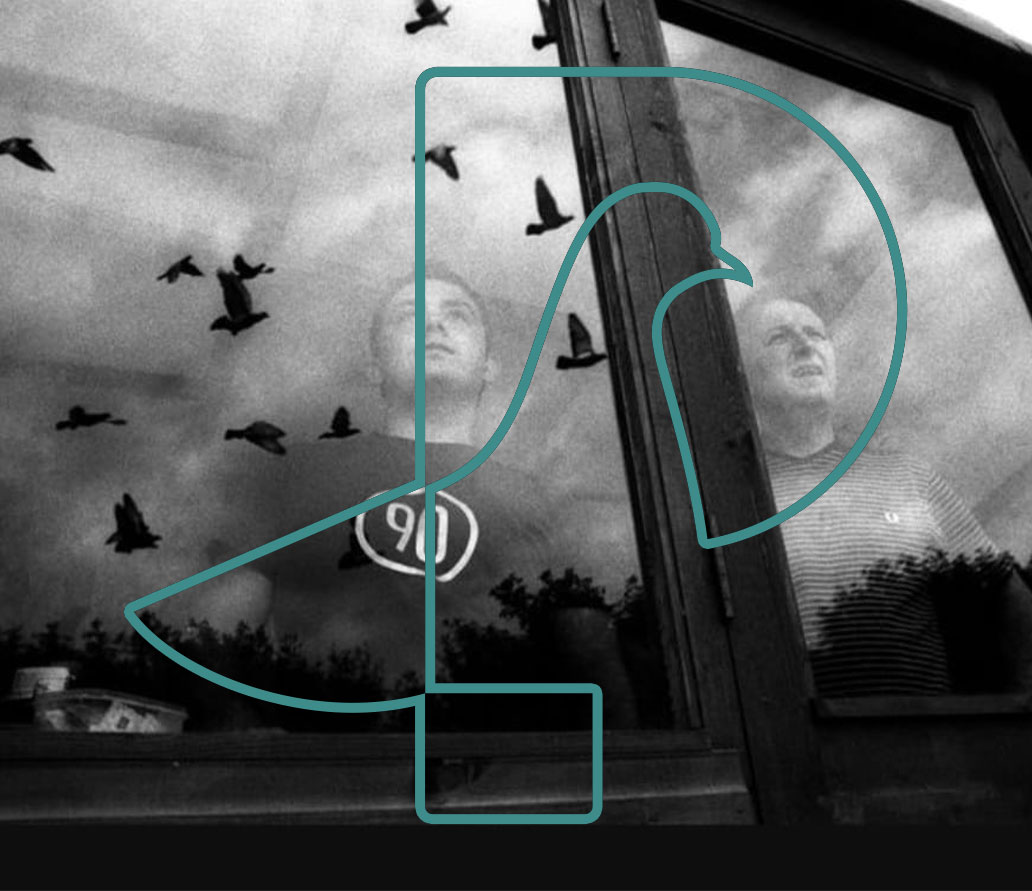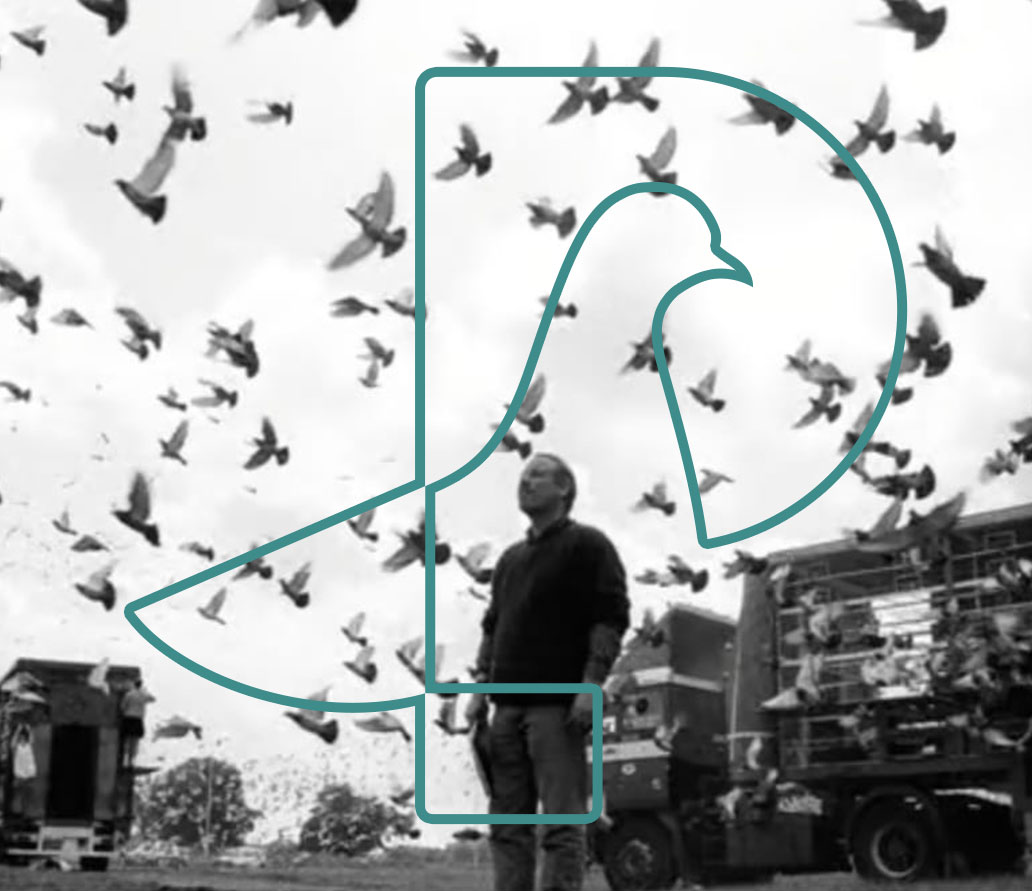About Us
Pigeon Pathways is a volunteer led, not-for-profit organisation that aims to encourage newcomers into the world of pigeon racing by promoting the best of what our sport has to offer.
Family Racing Starts Here
Pigeon Pathways unites dedicated fanciers towards ensuring the sport’s timeless allure remains a shared treasure. Across Britain’s towns and cities, pigeon men and women gather to uphold a cherished tradition that transcends generations. By showcasing our great sport at live events and online, we can renew interest in the fancy and welcome newcomers to the sport, therefore securing the future of our collective passion.
Pigeon Racing Culture
Steeped in working-class roots, but also practiced by royalty, pigeon racing culture has long been a focal point of community pride across the UK. Working men traditionally gathered at weekends in anticipation of the racing to come, when eyes would turn skyward, waiting for victorious birds to return from distant release points. Conversations about feeding regimens, breeding lines, and best practices were shared over pints at the local pub, weaving a tight-knit tapestry of camaraderie and competition. Even in changing times, the echoes of those bustling days still resonate: from weather-worn lofts to spirited discussions about bloodlines, feeding and training, the passion endures.
Modern fanciers continue to devote countless hours to refining their birds’ health, stamina, and directional instincts. Technology now intersects with tradition, through digital clocks and social media, bringing fanciers together no matter where they call home. Yet the heart of pigeon racing remains the same, an unwavering love for the birds, competition and their spectacular feats of navigation.
Meet the Team
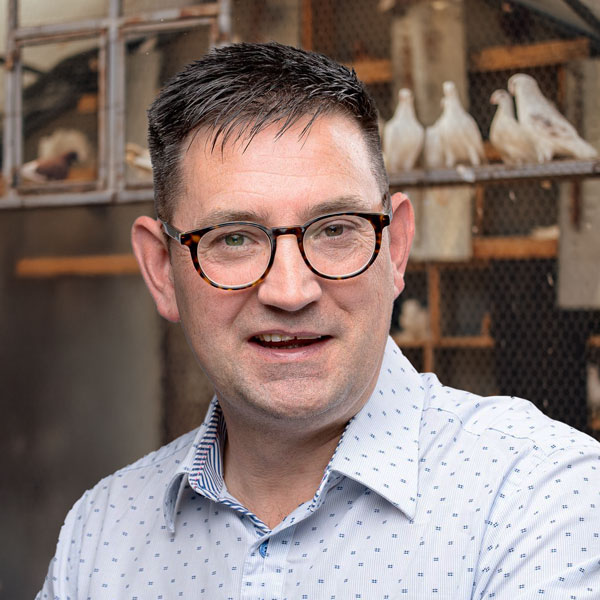
John Waters
John Waters has been involved in the world of pigeon racing for over 40 years. His deep involvement in the sport of pigeon racing has led him to a deep involvement in the administration of pigeon racing which includes roles as club secretary, federation secretary, region secretary, and past RPRA council member, all of which have helped shape the sport and its community.
John enjoys the sport from all angles but finds his greatest thrill in watching the pigeons come home, their wings folding through the sky, (despite the time of arrival). Seeing them circle the loft for their daily exercise is a great way for John to unwind after a day at work. This connection with the birds goes beyond competition – it’s about celebrating the relationship between man and pigeon. John’s wealth of experience and his love for the sport, will help Pigeon Pathways’ mission to support and grow pigeon racing for generations to come.

Dan Soanes-Brown
Beginning his racing journey in 2022, Dan is a newcomer to the world of pigeon sport. Coming from a family without any fanciers at all he had to pick up what he could through the advice of racing veterans, books, online research and his own trial and error. With a BSc in Zoology and previously a keeper of rare breed poultry, Dan’s interest in animal husbandry and the science behind breeding has long been a staple of his life. He really enjoys sports too, including racing and motorsport. So all things considered pigeon racing seemed like a good hobby for him to take up.
Dan owns a manufacturing company and part of his role there is to film ads for online use. To hone his videography skills he decided to record his pigeon racing journey from the very beginning and so created the ‘How To Train Your Pigeon’ YouTube channel. With over 2 million views to date it is more popular than he expected it to be. But whilst he was pleased to see an appetite for pigeon racing content online, he felt the sport was lacking a cohesive plan to promote pigeon racing in the UK and the western world. And so was born the idea of Pigeon Pathways.
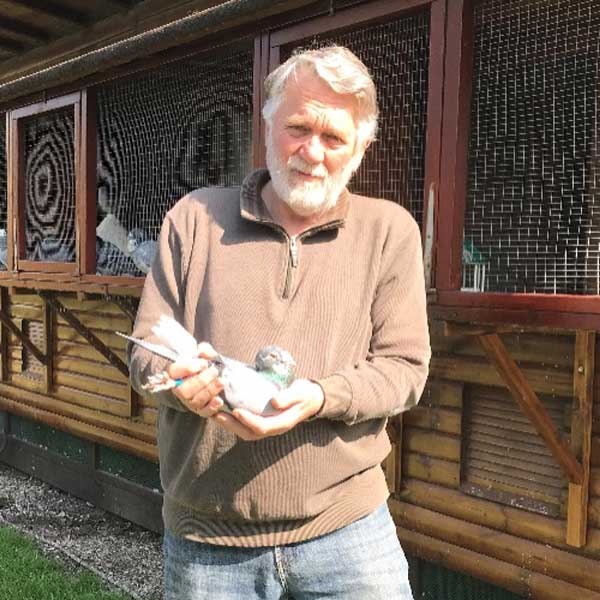
Stuart Mellor
Staurt first became interested in pigeons at the age of eleven, starting with a mix of fantails and strays. Before long, he began keeping racers and printing Macclesfield Tipplers, which were his first competitive pigeons during his teenage years. He started racing pigeons in the early 1970s and continued until the early 1990s, when work commitments made it impossible to continue. In 1994, he returned to the sport and has been racing pigeons ever since.
Over the years, he has served in several official roles, including clocksetter and club representative to the federation, amalgamation, and region. He was also elected as a regional delegate to the RPRA Council and, for a short time, held the position of RPRA Vice President.

Ian Evans
Ian resides from the Rhymney Valley, South Wales and has been in pigeon racing for over 40 years. He has been around racing pigeons all his life. His father, both grandfather’s, uncles and cousins race pigeons.
Ian has held many positions within the hobby including Chief Executive of the Royal Pigeon Racing Association. He has helped the hobby face many challenges during covid, Brexit (that placed barrier in the way of cross channel pigeon racing) and helped reduce the impact of bird flu restrictions on the hobby during the racing season.
Ian is passionate about promoting the hobby and encouraging participation in the sport for all. Ian hopes Pigeon Pathway’s will help sustain the sport for many years to come and will encourage everyone to take up the sport of pigeon racing and enjoy the experiences pigeons have brought Ian over the past 40 years.
A Brief History
From humble beginnings in busy industrial towns to the days of thriving local clubs, pigeon racing’s story is as fascinating as it is enduring. Its journey through Britain’s social and cultural transformation reveals a vibrant pastime that has survived change while preserving the essence of community, pride, and shared victories.
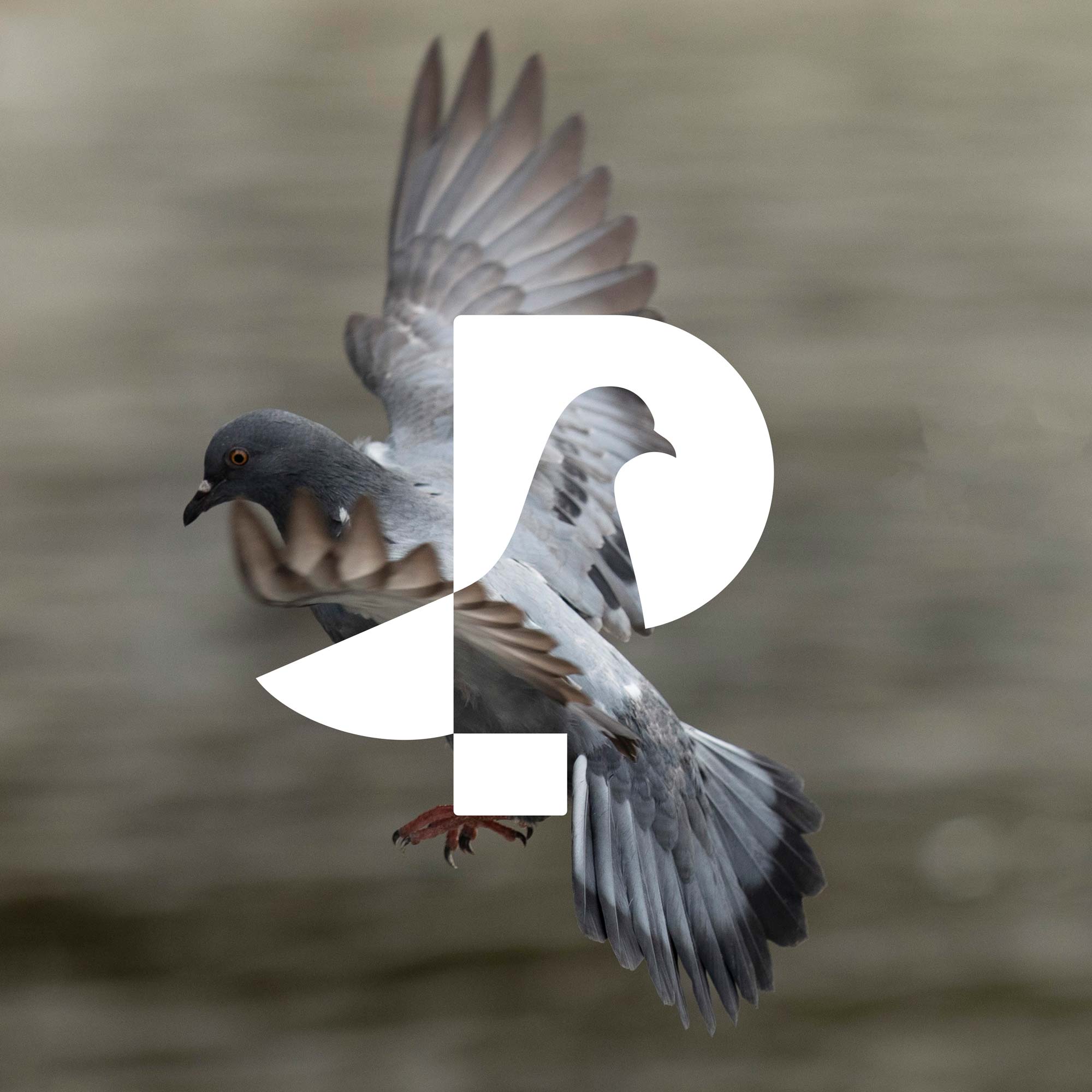
Pigeon racing traces its roots back centuries, but it truly flourished in Britain during the Industrial Revolution. As factories and mines transformed the nation, working-class communities turned to pigeon keeping for affordable leisure. The sport was simple yet gripping: release homing pigeons from a distant location, then await their rapid return. Over time, competitions offered not only trophies but also significant prizes, cementing pigeon racing as a vibrant pastime among miners, steelworkers, and shipbuilders.
By the late nineteenth century, towns across northern England, Scotland, and Wales proudly boasted dozens of pigeon clubs. Fanciers meticulously bred birds for speed, endurance, and reliable homing instincts, dedicating countless hours to perfecting loft designs and carefully planned feeding routines. Friendly rivalries sparked within local pubs, where enthusiasts shared breeding strategies and race outcomes over pints. Families got involved as well: children helped maintain lofts, and spouses offered unwavering support, creating a community spirit that transcended social barriers.
However, the latter half of the twentieth century brought radical changes. As industrial jobs vanished, entire neighbourhoods dispersed. Younger generations gravitated toward modern entertainment, overlooking the commitment demanded by pigeon racing. Predator birds like peregrine falcons rebounded, further disheartening potential newcomers. The once-thriving clubs dwindled, leaving behind quiet lofts and fading race memories.
Despite these setbacks, pigeon racing’s legacy remains strong. Enthusiasts still revere the camaraderie, skill, and determination required to train winning birds, inspired by the generations who found hope and unity in the flutter of wings. Through outreach, novices are welcomed to explore pigeon racing. Today, technology simplifies timing and tracking, allowing fanciers to embrace both tradition and innovation. With renewed interest in heritage hobbies and the emergence of one-loft races, Pigeon Pathways champions a resurgence that honours the sport’s storied past while propelling it forward, ensuring pigeon racing’s enduring place in Britain’s cultural tapestry.
